Struggling with this for sometime now, and applogies I changed the query name for the question to getDeviceReadings, I have been using getAllUserDevices (sorry for any confusion)
type Device {
id: String
device: String!
}
type Reading {
device: String
time: Int
}
type PaginatedDevices {
devices: [Device]
readings: [Reading]
nextToken: String
}
type Query {
getDevicesReadings(nextToken: String, count: Int): PaginatedDevices
}
Then I have a resolver on the query getDevicesReadings which works fine and returns all the devices a user has so far so good
{
"version": "2017-02-28",
"operation": "Query",
"query" : {
"expression": "id = :id",
"expressionValues" : {
":id" : { "S" : "${context.identity.username}" }
}
}
#if( ${context.arguments.count} )
,"limit": ${context.arguments.count}
#end
#if( ${context.arguments.nextToken} )
,"nextToken": "${context.arguments.nextToken}"
#end
}
now I want to return all the readings that devices has based on the source result so I have a resolver on getDevicesReadings/readings
#set($ids = [])
#foreach($id in ${ctx.source.devices})
#set($map = {})
$util.qr($map.put("device", $util.dynamodb.toString($id.device)))
$util.qr($ids.add($map))
#end
{
"version" : "2018-05-29",
"operation" : "BatchGetItem",
"tables" : {
"readings": {
"keys": $util.toJson($ids),
"consistentRead": true
}
}
}
With a response mapping like so ..
$utils.toJson($context.result.data.readings)
I run a query
query getShit{
getDevicesReadings{
devices{
device
}
readings{
device
time
}
}
}
this returns the following results
{
"data": {
"getAllUserDevices": {
"devices": [
{
"device": "123"
},
{
"device": "a935eeb8-a0d0-11e8-a020-7c67a28eda41"
}
],
"readings": [
null,
null
]
}
}
}
As you can see on the image the primary partition key is device on the readings table I look at the logs and I have the following
Sorry if you cant read the log it basically says that there are unprocessedKeys
and the following error message
"message": "The provided key element does not match the schema (Service: AmazonDynamoDBv2; Status Code: 400; Error Code: ValidationException; Request ID: 0H21LJE234CH1GO7A705VNQTJVVV4KQNSO5AEMVJF66Q9ASUAAJG)",
I'm guessing some how my mapping isn't quite correct and I'm passing in readings as my keys ?
Any help greatly appreciated

